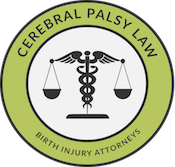Coping While Your Newborn is in the Neonatal Intensive Care Unit (NICU)
Delivery day is a hectic, joyous, and life-changing event for every parent. When a baby is admitted into the NICU, parents are confronted with a whole new mix of emotions, questions, and concerns. Throughout this page, we’ll impart a few tips to help new parents stay calm, confident, and strong during their baby’s stay in the NICU.
Before delving into coping strategies for new NICU parents, let’s briefly discuss a few reasons infants are admitted into the neonatal intensive care unit in the first place. Babies in the NICU may have been born prematurely, with infections, with traumatic birth injuries, or with other health problems. Beyond major genetic issues, babies are most likely to enter the NICU because of events and injuries inflicted around the time of birth. Some of these injuries include hypoxic ischemic encephalopathy (HIE; birth asphyxia), head trauma, fetal stroke, intracranial hemorrhages (brain bleeds), nuchal cords, respiratory problems, infection, jaundice and kernicterus, and others. Medical professionals use advanced technology and specific medical practices to heal and care for babies in the NICU.
10 Tips for Parents in the NICU
1. Practice self-care
It is critical for NICU parents to prioritize sleep, nutrition, personal time, exercise, time with friends and family, and other self-care practices. While so many parents let feelings of guilt, fear, anxiety, and panic keep them in the NICU for hours on end, it is crucial to do what is necessary to address and alleviate these feelings. Parents should recognize it’s necessary to release emotion in whatever way best suits them—many parents find that taking breaks from their babies’ sides helps them keep balance, clear their minds, and renew their strength. Confronting the challenges of the NICU with a rested, clean mind can help keep paranoia, anxiety, and fear at bay.
2. Bond and interact with your baby
 As any parent in the NICU knows, every moment with your newborn is precious. Although your baby will be separate from you, continually ask if you can touch, hold, or interact with your baby. Studies constantly show the positive developmental benefits of kangaroo care and interaction with your newborn. Whenever possible, try to read to, sing to, massage, feed, bond with, hold, or touch your baby. Many parents also decorate their babies’ NICU incubators and environments.
As any parent in the NICU knows, every moment with your newborn is precious. Although your baby will be separate from you, continually ask if you can touch, hold, or interact with your baby. Studies constantly show the positive developmental benefits of kangaroo care and interaction with your newborn. Whenever possible, try to read to, sing to, massage, feed, bond with, hold, or touch your baby. Many parents also decorate their babies’ NICU incubators and environments.
3. Accept and request help
While you may feel alone as a parent in the NICU, there is a whole network of people waiting to assist you. Friends, family members, other parents in the NICU, parents with children formerly in the NICU, hospital workers, volunteers, nurses, and support groups provide valuable support. Many parents in the NICU are encouraged to step away from ordinary responsibilities and instead delegate things like grocery shopping, meal prep, and pet care to other people. Accepting and requesting help, emotional support, and supplies from others is expected of parents with babies in the neonatal intensive care unit.
NICU parents should ask hospital staff about resources available through the hospital. Most medical centers offer meal preparation, support groups, educational classes, informational resources, and other support resources to parents with infants in the neonatal intensive care unit.
Many people are hesitant to request help from counselors, psychologists, therapists, and other professionals but, as the parent of a child in the NICU, it is crucial to remember that professional help exists. According to the March of Dimes, NICU parents should talk to a professional if they feel prolonged detachment or apathy, have a hard time getting out of bed in the morning, are unable to cope with other responsibilities, have thoughts about harming themselves or others, or feel other depressive or dangerous emotions. Hallucinations, extreme confusion, delusions, violent thoughts, and suicidal thoughts are considered medical emergencies and require professional help. It is also crucial for new mothers to address postpartum depression.
4. Find an outlet for expression
Finding an outlet for expression in the NICU is vital to a parent’s well-being. Parents experience a range of emotions in the neonatal intensive care unit. While it is normal to feel everything from despair to joy to apathy, many parents feel as though their emotions are abnormal. The process of expressing oneself via writing, videos, art, or discussion is therapeutic and helps many parents sort through mixed emotions, better understand their feelings, and celebrate their baby’s accomplishments. Sharing your emotions and experiences with friends, family, support groups, other parents in the NICU, or the public can be empowering, cathartic, and comforting for parents with infants in intensive care. Various organizations, websites, support groups, and resources make this possible.
5. Document your child’s development
Having a newborn, despite his or her specific health problems, is still a time of excitement and joy for new parents. Take pictures and videos of your baby in order to document his or her development and first days of life—having a record of the challenges and accomplishments of the NICU will be a timeless, valuable reminder of your first days together later in life.
6. Connect with other parents in the NICU
Parent-to-parent relationships in the NICU are unique and valuable. By connecting and communicating with other NICU parents, you’ll be able to comfort, support, empower, and relate with each other. These relationships often stretch well beyond the walls of the NICU and result in lasting friendships and support systems. Many parents also look to the parents who used to have a child in the NICU for support and positivity.
7. Don’t compare your situation with that of another family’s
Every family in the NICU has a different story—yours will handle the NICU experience in its own unique way. While you shouldn’t expect to share the same exact feelings, scenarios, or outcomes with other NICU families, you can still connect with families and develop empathy, mutual respect, and a sense of community.
8. Communicate with and gather information from the NICU nurses and doctors
Learn when the doctors, nurses, care teams, and spiritual workers make their rounds and then approach them with your questions and concerns. They are compassionate, comforting hard workers with the explanations you’ll want. Don’t hesitate to ask how your baby is doing, what his or her current medical status is, how you will be updated about changes to his or her health, how you can help, or who you should contact with certain questions. If you believe your baby was injured due to an instance of negligence, you should contact an attorney specializing in birth trauma—medical malpractice attorneys focusing on birth injury cases provide important legal guidance to new parents in the NICU and they can help you determine the cause of your loved one’s injuries.
9. Tour your hospital and NICU before or after delivering
Especially for high-risk pregnancies, it is important to research your hospital’s facilities before and/or after delivering. By requesting hospital, delivery room, and NICU tours from hospital staff, parents and expectant parents can feel more comfortable before, during, and after delivery. Learning where everything is located in the NICU will help parents feel more at home during their baby’s time in the NICU.
10. Stay hopeful and positive
It is distressing to see your baby surrounded by wires and monitors, but it is crucial to remember that this supportive machinery is for the best. Stay confident in your baby’s ability to heal and your ability as a parent. Such a new, stressful experience may make you feel uncomfortable, anxious, or underprepared, but remember that all new parents feel these emotions regardless of whether their baby is in the neonatal intensive care unit.
Legal Help in the NICU
Medical Malpractice, Birth Injury & the Neonatal Intensive Care Unit
A parent’s time in the neonatal intensive care unit is bound to be full of challenges, triumphs, long days, and conflicting emotions. We hope these tips help you stay calm, strong, and confident during your baby’s stay in the NICU.
Many parents are so consumed with the immediate challenges associated with the NICU that they never consider whether medical malpractice caused their baby’s injuries. Many babies in the NICU are injured due to negligence and, unfortunately, their parents fail to consider legal help before their statutes of limitation expire.
If you believe that an instance of medical negligence occurred before, during, or after the time of delivery, we urge you to take a moment to contact a birth injury attorney from our team. For no charge, our birth injury attorneys will determine the cause of your loved one’s injuries and inform you of your legal options. To begin your free case review, you may call us toll-free at (888) 592-1857 or complete this online contact form.
